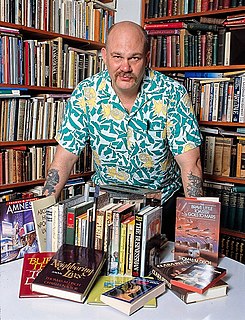A Quote by Steve Martin
When I was in college, I really liked poetry. I don't read much anymore.
Related Quotes
When I was in school, I was very much into just sports, mostly basketball, and didn't really see myself as much of a student. But once I got into college, I figured I wasn't going to be play beyond college. I started to think what was I going to do, since I wouldn't be able to make a living with basketball. There were a couple of things I liked to do. I wrote poetry, spoken word mostly.
One of the interesting things about the history of poetry in the 16th, 17th, and 18th centuries is that people who read liked getting their information in rhyme just as much as in prose. The genre that we would think of as nonfiction often was written in verse in forms like the Georgic when people thought that one of the tasks of poetry was conveying arguments and information in a pleasant way.
I guess it really didn't even dawn on me that you could be a rock critic as a job until I was maybe almost out of college. I knew criticism existed. I read Rolling Stone and Spin. Siskel and Ebert were on television. But I had absolutely no idea how to get that kind of life. And moreover, it didn't interest me that much. I just sort of read normal books growing up. I wasn't that media-conscious. I felt like the one thing I was able to do was to listen to a record and decide whether I liked it.


































